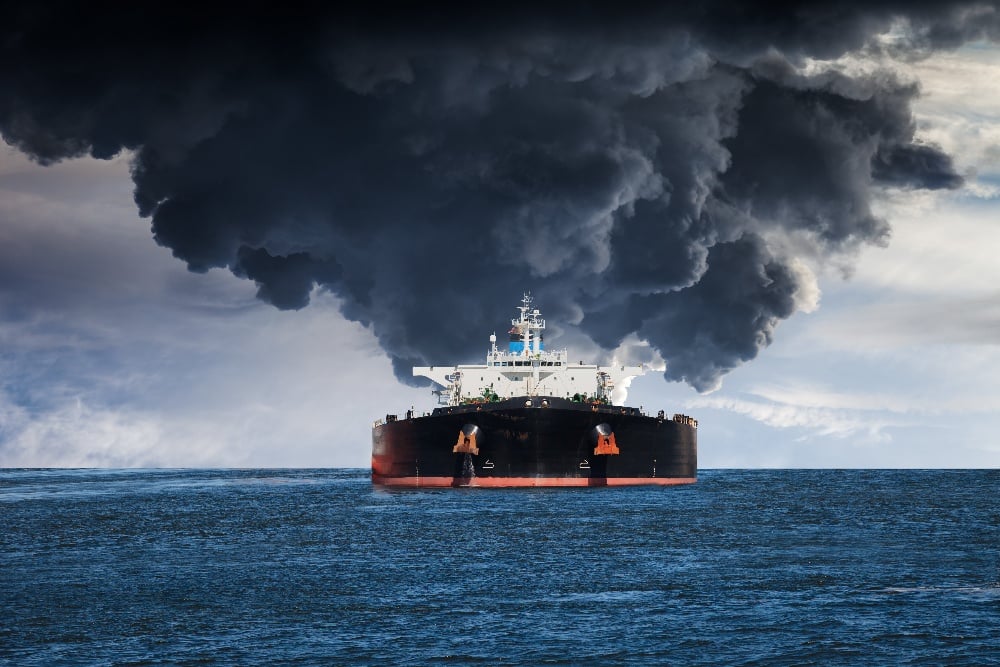3 min read
Asia war risk premium seen mostly firm on Persian Gulf concerns
By: Hellenic Shipping News on May 16, 2023 at 8:00 AM

Maritime war risk premiums for commercial shipping are expected to remain firm over the next several months, if not years, due to prevailing geopolitical risks and even the country of ownership and flag are factors in their calculations, several insurance providers and classification societies said.
“Even though the adverse incidents on high seas in the Persian Gulf are sporadic but they do keep reminding us from time to time that the threat has not gone away,” a senior executive with a maritime security equipment manufacturer said on the sidelines of the IMDEX Asia conference during the week ended May 5 in Singapore.
This is primarily the reason why war risk premiums have not shown any decline in recent months, the executive said.
In February, unmanned aerial systems attacked two tankers and one bulk carrier in the Arabian sea, two of them Israeli owned, international maritime sources said. This prompted accusations and counter accusations between Israel and Iran at the highest level based on the drone’s point of origin and tracking data.
Late last year, another drone attacked a clean tanker, the Pacific Zircon, while in 2021 the Mercer Street and Helios Ray were attacked using similar modus operandi. Ownership of all three ships could be traced to Israeli businesses.
“This implies that ships controlled or owned, even partially by Israeli businessmen are more liable to war time risk then others,” an executive at an international Protection and Indemnity, or P&I, Club said.
“For the specific nationalities involved it may drive up costs,” an underwriter with a war risk insurance provider involved in such deals said.
Most market participants, not only the owners and charterers but also the insurance providers said it was a given that such attacks keep happening from time to time and therefore the risk assessment will not be downgraded in the Persian Gulf and the Gulf of Oman.
“Incidents like these are unfortunately not surprising. A single incident does not drive prices up, but rather reconfirms there is a risk,” the underwriter added.
Higher costs
Another maritime insurer said that targeted country based attacks meant additional costs of insurance for ships owned by those origins.
“Ownership is a factor in the risk assessment,” an executive at Lloyd’s Market Association said.
Maritime insurance companies typically take a cue from the High Risk Area list of the LMA’s Joint War Committee.
In August last year, several shipping industry bodies favored the removal of the categorization of Indian Ocean as an HRA for commercial maritime operations. Even though the HRA list was not changed, premiums for voyages in the Indian Ocean started to gradually reduce over time as insurers noted the decline in attacks.
No such decline in premiums happened in the Persian Gulf, shipping industry executives said. Notable risks still remain in the region, which is a major source of oil for Asian buyers and an area of concern due to US sanctions on Iran and several violent terrorism related incidents in the last four years.
Last week, Panama-flagged oil tanker, the Niovi was seized by Iran’s Islamic Revolutionary Guard Corps Navy while transiting the Strait of Hormuz, the US government said in a statement.
Insurers continued to charge a premium to owners whose ships pass the Gulf of Oman, that included waters around the bunkering port of Fujairah, several chartering executives said.
LR1 tankers moving on the Persian Gulf-North Asia routes pay an additional war risk premia anywhere between $30,000-$50,000 for each voyage, depending on the number of days spent in the HRA, age of the ship and a few other factors, a chartering executive involved in such transactions said.
It has been almost four years that owners have been passing on these additional charges to charterers, adding to the delivered cost of cargoes and price inflation worldwide. Millions of dollars involving hundreds of ships have been shelled out as war risk premiums due to these occasional violent incidents, even though the overall situation in the region is by and large peaceful, the executive said.
Nonetheless, attacks keep happening from time to time, even in relatively peaceful areas. In February, a Israeli-linked but Liberian flagged product tanker, the Campo Square was attacked in the Arabian Sea.
The Arabian Sea situation is dynamic but repeated attacks will influence insurance pricing, the same LMA executive cautioned.
Source: Hellenic Shipping News
Related Posts
METIS INSIGHT High Risk Areas and Maritime War..
This edition of METIS Inform is a revised issue of a piece we published in May 2021. The content of..
Red Sea shipping costs rising after Houthis..
As reported by Reuters, the cost of shipping goods through the Red Sea is increasing due to the..
Shippers unlikely to see lower insurance premiums..
Shipowners and charterers carrying commodities in the Indian Ocean are unlikely to see lower..




